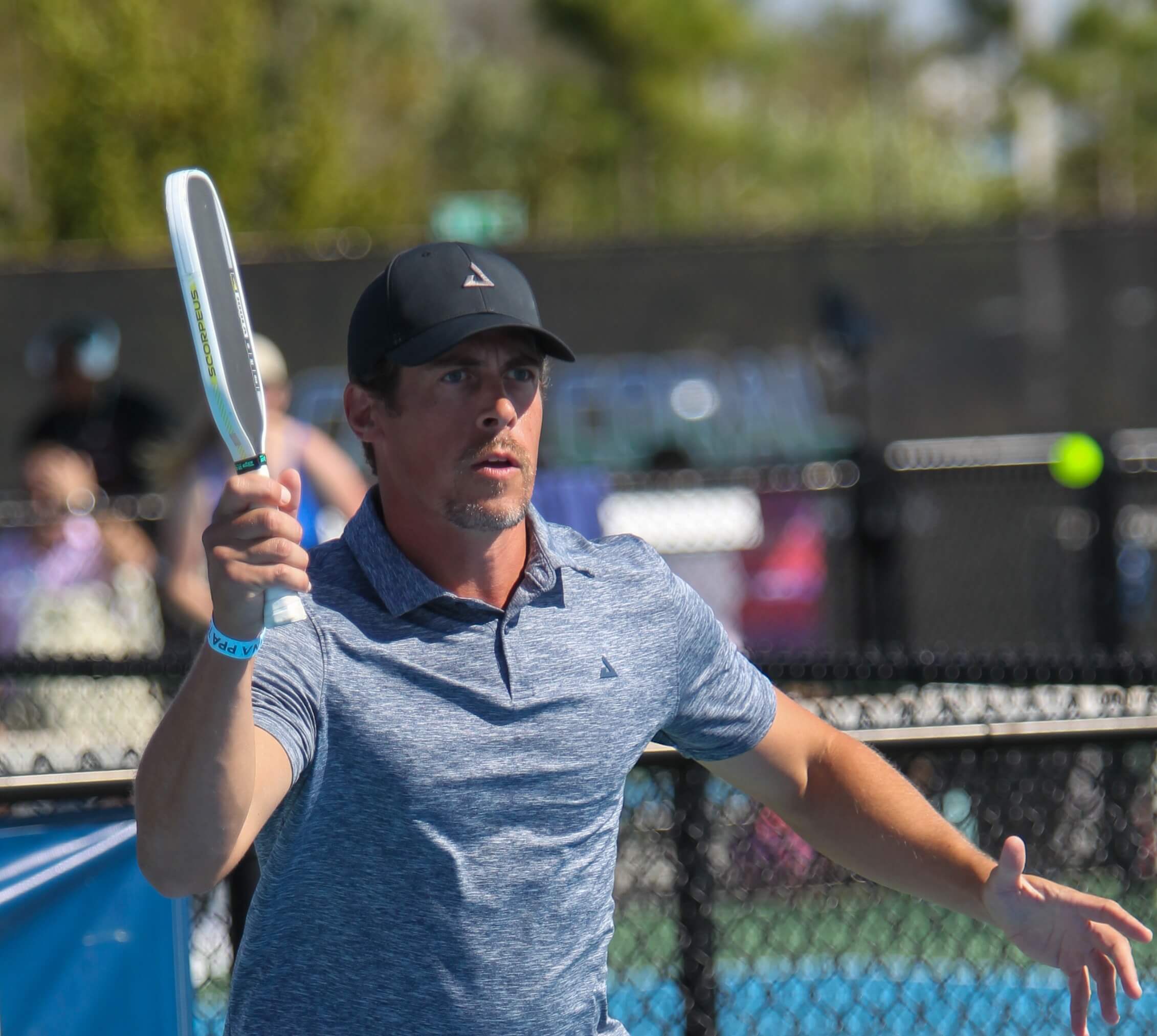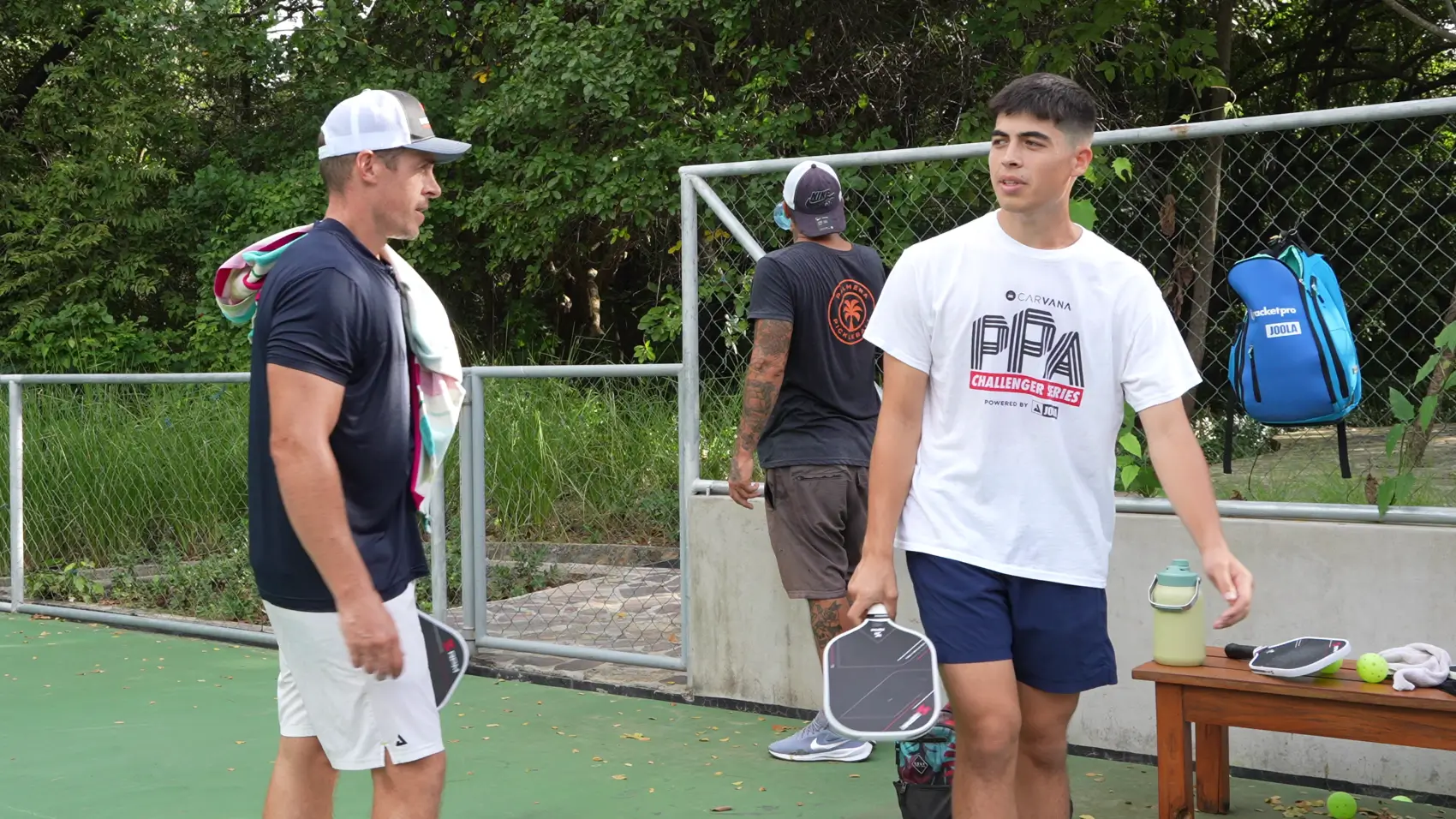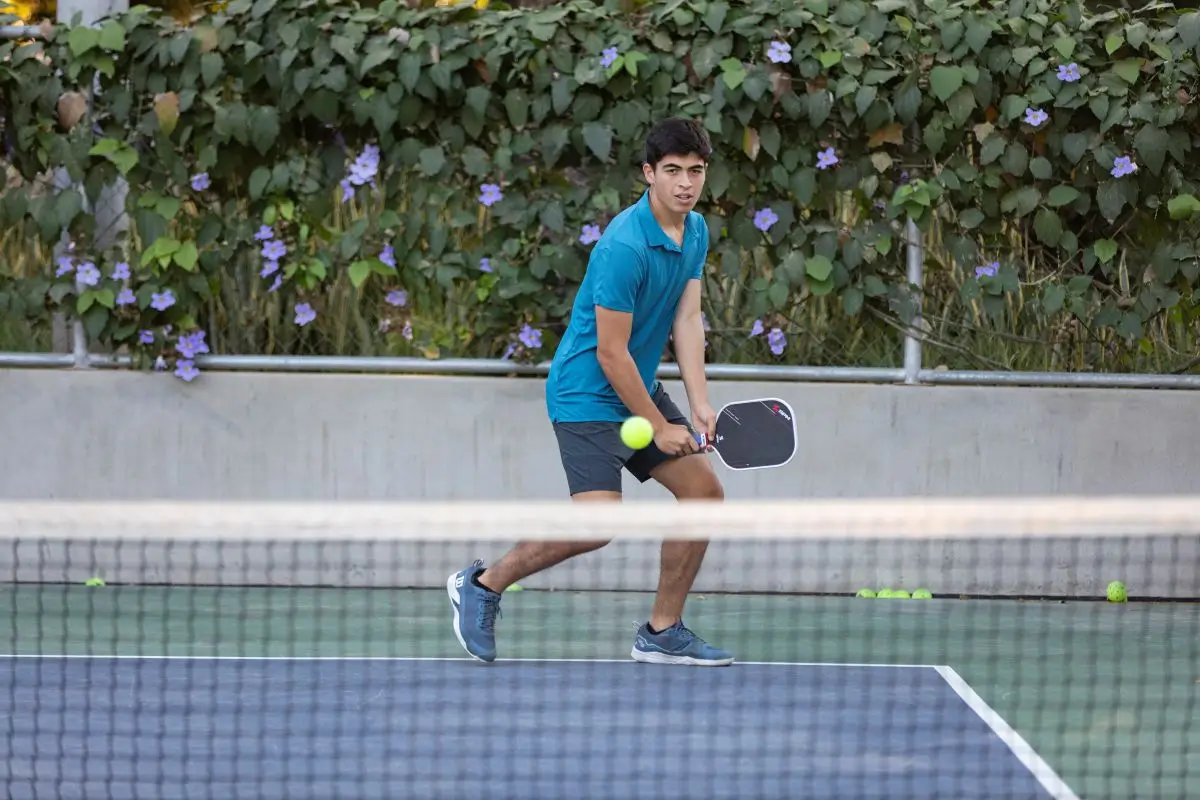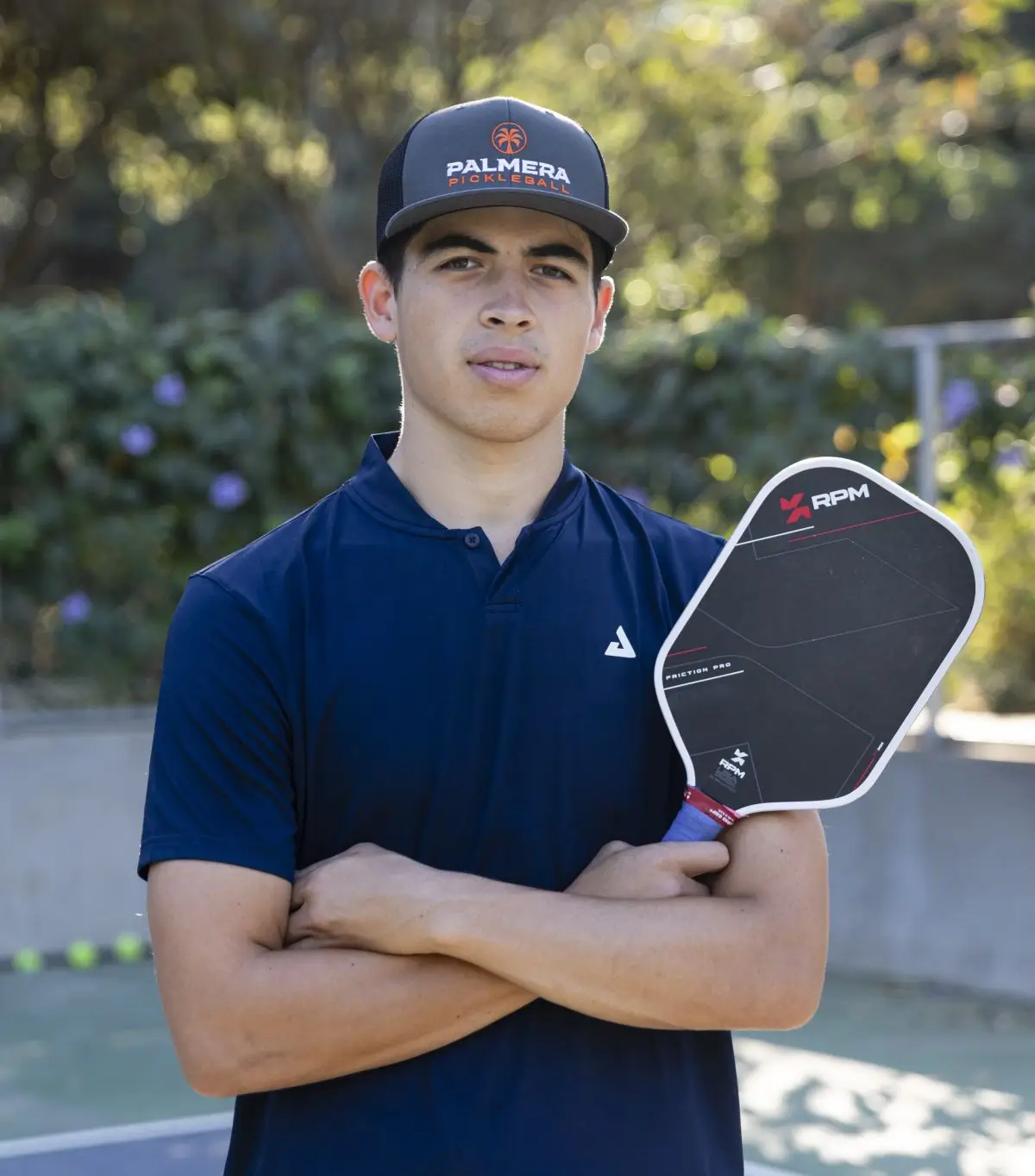Zane Ford and the Truth About PPA Challenger vs Premier Events
Zane Ford’s appearance in mixed doubles at the PPA Challenger in Punta Gorda became a hot topic during a match in the back draw—but was it unethical as claimed or part of the pro system? We dive into the drama, the ladder system, and why PPA Challenger events matter more than people think.

This past week in Punta Gorda, we witnessed one of the most electric mixed doubles matches of the year—and no, it wasn't a gold medal final. It was Round 3 of the PPA Challenger back draw.
On Court 20, Zane Ford (5.737 doubles) and Maria Vyshkina (4.926 doubles rating, and in her 2nd or 3rd-ever DUPR-rated pickleball tournament) squared off against Victoria Shinkaretzky (4.469 doubles) and Christopher Crouch (5.776 doubles).

The score? A nail-biting 18-16 finish for Shinkaretzky/Crouch. But it wasn’t just the shot making that lit up the court.
It was the tension.
Midway through the match, between points, Crouch was audibly chirping at Ford. The accusation? That Zane was "sandbagging" by playing in a PPA Challenger event at all. "You don't belong here!" he scoffed between points up at the net.
Let's unpack that.
1. The Myth of the Mixed-Doubles Superstar
Let’s set the record straight: success in one format of competitive pickleball doesn’t guarantee dominance in another. Zane Ford is a formidable singles competitor, but the jump from singles to doubles is no small leap. The skill sets are distinct—singles rewards extreme athletic court coverage requiring high levels of speed, footwork efficiency, stamina, endurance, mobility, and dexterity; doubles demands anticipation, positioning, communication, and partnership dynamics.
That’s not sandbagging—that’s sharpening.
And even within doubles, gender doubles and mixed doubles are vastly different beasts. In mixed, there are unspoken dynamics, court coverage conventions, and strategic subtleties that don’t apply to men’s or women’s doubles. Timing, chemistry, and role distribution are all recalibrated. So the idea that someone who's strong in singles—or even in a different type of doubles—is automatically a dominant force in another format is simply false.
To accuse a player of "sandbagging" for competing across formats in a different PPA tournament at the pro level is more theater than truth. At best, it's a bit of courtside gamesmanship—amateur psychology dressed up in theatrics, aimed at firing up the crowd and trying to rattle an opponent's composure. But at worst, it reflects a misunderstanding of how layered, specialized, and demanding this sport truly is.
2. Challenger Events Feed Premier Events: That’s thePoint
Here's the beauty of the system: win a Challenger, and you get seeded into the main draw of a Premier event. It’s one of the few built-in ladders in pro sports where performance directly feeds upward opportunity. These aren’t rec tournaments with pizza and medals. These are structured, merit-based battlegrounds designed to surface real talent.
That Zane entered a Challenger and performed well? That’s the system working.
3. Cultivating Talent Requires Stages
The Premier PPA events are glitzier. Bigger crowds, bigger purses, and bigger pressure. But Challenger events are crucial. They offer newer or developing pros a platform to gain real match experience in a lower-stakes but still fiercely competitive environment. Every pro athlete needs reps. The PPA Challenger series provides that vital stage without watering down the definition of "pro."
Pro tournaments shouldn’t be gated communities—they should be proving grounds.
4. Iron Sharpens Iron
Contrary to Crouch’s heckling, having players like Zane Ford show up at Challenger events doesn’t dilute the competition—it amplifies it. For rising stars, this is exactly what you want: a real-time litmus test against pros who’ve proven they can go deep in Premier brackets and notch wins against the game’s elite. Zane, for example, has defeated the likes of Ben Johns, Jaume Martinez Vich, Michael Lloyd, Grayson Goldin, and Roscoe Bellamy in singles play. That’s not sandbagging—that’s sharpening.
Exposure to that level of talent accelerates growth. It raises the quality of play. Pro tournaments shouldn’t be gated communities—they should be proving grounds. And this kind of cross-pollination between elite and emerging talent? It’s not only welcome. It’s essential. As The Inner Game of Tennis reminds us, our opponents are not obstacles but catalysts—partners in the crucible of growth, helping forge sharper focus, deeper resilience, and elevated skill. The real game isn't about avoiding the toughest matchups. It's about embracing them.
5. Why Qualifying Sucks (and Matters)
Many don’t realize the gauntlet that is the qualifier round. You’re waking up early, playing multiple high-intensity matches just to get into the main draw. By the time you’re there, you’re physically depleted, especially in hot, humid conditions like Florida. Getting seeded into the main draw (by winning a Challenger, for example) means you avoid that meat grinder. It’s a real advantage—not a loophole. It’s a reward for having already proven yourself under pressure. Instead of grinding through brutal Premier qualifiers just to make the bracket, you’ve already survived a different crucible: battling through a PPA Challenger tournament at the pro level. That path earns you the right to enter the main draw with momentum and respect—not shortcuts.
6. Is 5.0 Play "Sandbagging" For a Pro? Not Exactly.
This one is tricky. Some lower-ranked pros enter the 5.0 category if they don’t make it through pro qualifiers. To the casual observer, this looks like sandbagging. But here’s the nuance: the line between high-level 5.0 and low-tier pro is razor thin. In fact, anyone playing 5.0 (or any level, really) is eligible to play pro. That doesn’t mean they’re at the top of the pyramid. It means the pyramid is broader than people think. There's a wide spectrum of ability within that "pro" designation, and transitioning between tiers is part of the journey.
The real game isn't about avoiding the toughest matchups. It's about embracing them.
The Takeaway: Respect the Climb
The Crouch-Ford drama in Punta Gorda may have added spice to the match, but it also highlighted a misconception about how the pro ecosystem functions. PPA Challenger events aren’t minor leagues—they’re a vital artery in the circulatory system of pro pickleball.
So, to those throwing shade on the Zane Fords of the world for showing up at a Challenger: pause and consider. Maybe you’re not being sandbagged. Maybe you’re being sharpened.
Pro is pro. Let’s act like it.






